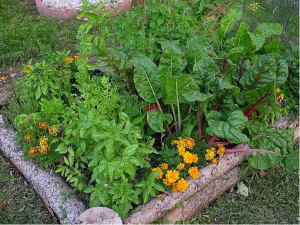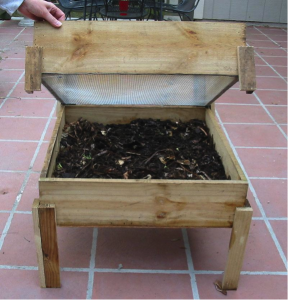After our most recent survey, it became apparent that many of our readers are concerned about becoming more resilient without spending a lot of money. After all, it’s no secret that the economy hasn’t quite rebounded and the increasing rate of inflation certainly doesn’t help either.
It’s important to remember that money is simply another form of exchange. We have talked in detail about local sharing economies recently and it is a perfect example of how we can become more resilient without breaking the bank.
For instance, we can just as easily trade an item we don’t need for something we do. You can literally trade anything that has value to someone else. If you think about it, this isn’t much different than our currency system anyway.
As a quick refresher, remember that in 1972 President Nixon removed the gold standard from our financial system. This means that our paper money is only backed by the “faith and trust of the US Government.” In other words, that $100 bill in your wallet is only worth $100 worth of goods and services if someone else is willing to accept it in trade.
We have seen countless societies completely collapse from their reliance on similar currency systems – including the ancient Roman Empire. So…it is in our best interest to focus less on cash whenever possible; instead looking for alternative ways to get what we need.
What’s more valuable than money? A lot of things!
Knowledge is probably the most important followed closely by the skills that make you a more self-sufficient individual. Knowledge can be anything from learning how to compost properly to understanding how to properly dehydrate and store food. These are the things that are really important and most of this information is available freely at our website (and others like it), the local library and other community-sponsored programs.
Tool libraries are another great example because these programs usually teach people how to use tools in addition to lending them to community members. It’s not just about getting tools without purchasing them, it’s about learning how to do new things and create solutions instead of buying them.
DIY
We talk about DIY projects all the time for one reason – we can’t rely on big box retailers for everything. When you make something, you are creating a customized solution that fits your needs exactly.
Here’s an example. I live in a very rural area where the nearest retail store is approximately a two hour drive (each way). I wanted a small desk for writing on my laptop so I started searching online for something that would work. Although I found a couple desks that would have met my needs, I decided that none of them were what I really wanted.
So, I went out to the garage and built one.
It wasn’t that I couldn’t afford to spend $100 on a desk. When you factor in the gas to drive to town and back, sales tax, etc. it just made more sense to at least try making one.
Believe me when I tell you that I am not an expert furniture maker. Actually, I’m not even a good woodworker at all. But guess what? The desk turned out perfectly using only scrap 2” x 4”s that were laying around from some other project.
Is this new desk a beacon of craftsmanship? ABSOLUTELY NOT! But it is fully functional, meets my needs perfectly, did not require a 2 hour drive each way and cost me about three hours of my time.
I think that most people have had similar experiences. If not, it’s far past time to get some. By looking for solutions to our problems that do not require a trip to a store, we can start living more resiliently without spending much (if any) money.
If you take anything away from this article, please remember that money is not the way to create resiliency. Sure…some solutions we discuss do cost a substantial amount of money to implement, but there are many other things requiring our attention that can be completed without any money and only a little bit of time.
Think pizza box converted into a small solar dehydrator or an old shower head becoming the basis for a compost heated outdoor shower. But don’t confuse resiliency with frugality. Although these concepts are related in many ways and the money you can save by creating useful DIY solutions at home can be a much needed income boost, resiliency is about creating solutions in simple, sustainable ways.
Starting with the Basics
Although my story about making a laptop desk demonstrates that practically anyone can create DIY solutions, you might not have the tools available or the knowledge base to feel comfortable doing things like that at home.
Let’s think instead about growing our own food. This is a resilient strategy that often gets overlooked when people start looking for inexpensive changes they can make at home. Even creating a small garden is going to help cut down the grocery bill and provide healthier food choices for you and your family.
After all, a new desk isn’t going to do much good if I have no food to eat, right?
Starting a garden is simple, inexpensive and sustainable. Even if the day arrives when food is no longer available in the grocery store, you will have your own fresh foods available for consumption. That is being resilient and it doesn’t have to cost more than a few dollars to get started.
Water is another area where we can start practicing resilient techniques without spending a lot of money. Without water, our bodies quickly succumb to dehydration. Have you ever thought about making an emergency charcoal water filter out of a soda bottle and some camp fire charcoal?
It’s cheap and can be stored away until a time when you need to purify water. For only slightly more (about $50), you could build a gravity-fed water filtration system. This system is capable of purifying over 1,000 gallons of water and it can be stored in the garage until needed.
The point is that there are plenty of ways to create resilient solutions at home without spending all sorts of money. We just need to know where to look – and believe me, it becomes much easier to “see” alternate solutions once you get into the habit of looking for them.
Fund Resilience with Resilience
When we examine a concept, we often look for ways to monetize the idea from a local perspective. What if you started a resilient part-time business? The money you earn could fund your own resiliency projects without tapping into your normal paycheck.
Vermiculture is a great example. You can set up a worm bin and grow worms for direct sale or for use in vermicompost for less than $50. Revenue is generated by selling worms as fishing bait or to other worm farmers. Alternatively, you could create nutrient-rich vermicompost and sell this organic fertilizer to neighbors for a small profit.
You could also generate a side income as a resiliency consultant. Applying the knowledge you learn here and elsewhere in the resiliency space, you could charge community members to help them become more resilient. This business opportunity requires practically no money up front but you definitely need to make sure their is a need for this type of service in the community for it to be a success.
Finally, you could offer organic gardening services within the community. Once again, there is very little (if any) upfront cost and this part-time business can put some money in your pocket while helping the community become more resilient.
None of these ideas are likely to make you rich; however, any extra income you earn can be applied directly to projects at your own home. Maybe you are saving for a new generator or a nice table saw so you can start building your own furniture. Either way, even a small amount of additional income is better than none at all and you should be able to reach your goals quickly as long as you keep your purpose in mind at all times.
Hopefully you realize that it doesn’t necessarily take money to become more resilient. Despite our discussions about drones, pellet stoves and backup generators, resiliency starts in the mind and is based more on your knowledge than your bank account.
This week, let’s not think about affording resiliency – let’s think about creating resiliency in any way we can.




